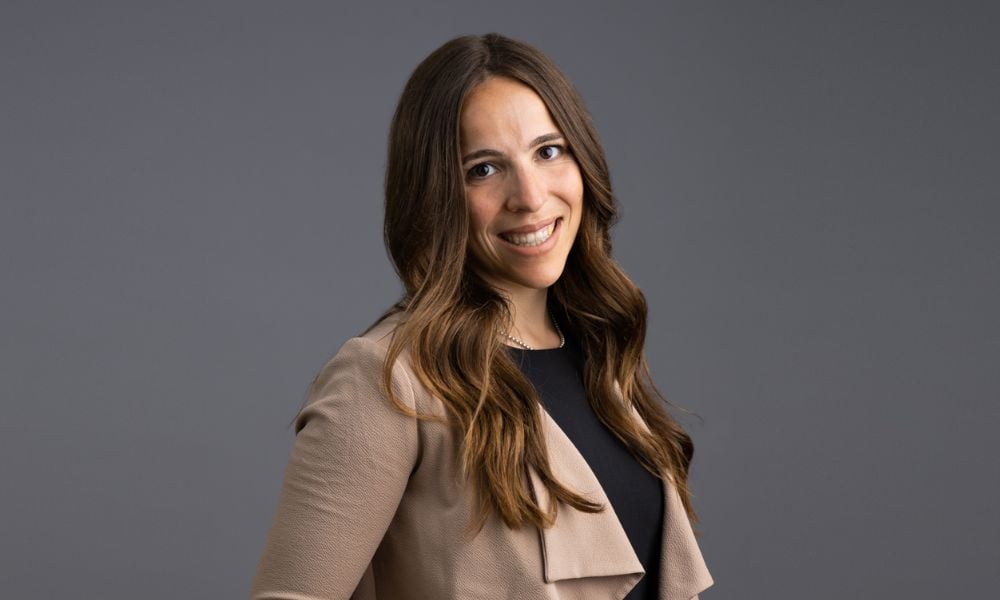
Handling complexities of cross-border litigation standard procedure for McLeish Orlando: Lindsay Charles

This article was created in partnership with McLeish Orlando LLP
Although she sees cross-border accident cases regularly, between visiting family for the holidays, University students with scholarships in the US coming home for winter break, and Snowbirds seeking a warmer climate, “it’s slightly more frequent in the winter months,” says Lindsay Charles, partner at McLeish Orlando LLP.
“Despite the event happening in a different jurisdiction, clients can generally proceed with a claim in Ontario,” Charles says. “There is a slight complexity to cross-border work, but we've handled these cases many times before — they’re nothing out of the ordinary for us.”
Before leaving the province, travelers should ensure that their auto-insurer will cover them for the where they are driving, the purpose they are driving, and the duration they are outside of their own jurisdiction. In some instances, coverage may change, or the insured person’s insurance premium may also change given their potential travel plans. This is especially important for Snowbirds who are typically gone longer than a quick trip down to Disney Land.
“The first step is having that conversation with your auto insurance provider to make sure your policy will extend coverage to you for the duration of time when you're in the States,” Charles says. “It’s something many people don’t even think about, but you don't want your policy to be void because you didn't notify them of an upcoming trip, which could affect premiums or coverage.”
This is of particular importance given the discrepancy between a typical Ontario auto-insurance policy and a run of the mill USA auto-insurance policy. In Ontario, insured drivers generally have a Family Protection Policy of at least $1,000,000. Generally speaking, American’s have less. That’s something that’s proven true in Charles’ experience, who says she sees policies ranging from $50,000 to as low as $15,000 — and if you've sustained a significant injury, “that's just not going to be enough.”
Depending on the injured person’s age, earning history, and degree of injury, a lawsuit resulting from a car accident can be in excess of several million dollars. This is why Charles’ suggests that insured drivers should discuss with their insurance broker purchasing additional coverage under their Family Protection Policy, and increasing their funding under their Statutory Accident Benefit insurance. Charles indicates that whenever a person is underinsured, if you are hit by them, your own auto-insurance through your Family Protection Policy will kick in to contribute the rest of your damages to ensure you are fully indemnified, assuming you’ve purchased enough coverage.
“Before you take a trip down to the States, it’s an important conversation to have with your insurer to see if you need more insurance based off of your life circumstances,” Charles says, adding that in general, it’s a good idea to make sure your family protection policies are large enough for your lifestyle.
“Someone who has a big earning potential might need a bigger family protection policy than someone who has a smaller income level, and someone who's younger, who has a much longer time period where they need to work or might need care if they're catastrophically injured, could need more coverage than someone that's closer to the end of their life.”
The hope is that the coverage and extra protection is never needed and any travelling goes smoothly, but accidents happen. If an Ontario resident is injured in the US, the first thing Charles recommends is to contact a personal injury lawyer from Ontario as soon as possible.
“We begin gathering evidence right away, ensure compliance with all limitation periods, and if required, connect with American counsel on more complex issues specific to that jurisdiction,” Charles says.
An Ontario-based lawyer is also better positioned to help with transitioning the injured person’s treatment from where the accident happened up to Ontario. They can also assist with contacting any collateral benefit insurers who may have additional coverage for the injured person. If the injured person does not have out-of-province health care available to them, incurred costs can be claimed through their own auto-insurer, and failing which in the lawsuit against the negligent driver.
“If someone is injured in a foreign jurisdiction, the most critical thing is to reach out to a personal injury firm who knows how to handle multi-jurisdiction cases. At McLeish Orlando, cross-border work is common and we are generally always able to assist.”